Ufaque Paiker in Mumbai
Faruk Kabir (right) is all set for his directorial as well as acting debut, Allah Ke Banday, releasing on Friday.
The movie starring Naseeruddin Shah, Sharman Joshi, Vikram Gokhale, Zakir Hussain, Atul Kulkarni, Rukhsar and Anjana Sukhani is about the world of juvenile crime.
Based on real life experiences, the film was shot in 47 locations in Mumbai, where the cast and crew ran into local gangs who demanded 'hafta' money.
The 28-year-old tells Ufaque Paiker about the whole unnerving experience of shooting the movie.
What were the obstacles you faced while shooting this film?
We shot for 62 days at 47 locations. When you are shooting in your own set, things are under your control. But in a live location, there are many things that can go wrong. You need permits and that sort of thing. Then there are the crowds.
I have shot in areas like Bhandup, Tumbulur and Trombay, near Mumbai. No one has ever shot there before. The dynamics of real life locations are very tough. We had to hide the cameras at times.
'I did the role of Yakub because we could not get the right person'
Image: A scene from Allah Ke BandayBesides directing the movie, you have also written, acted and composed the songs. How did you manage to do it all?
I knew that after writing the script, I would have to direct it. But acting was accidental. I did the role of Yakub because we could not get the right person. Everyone wanted to do Sharman's role because he is the protagonist.
Plus, I bore a close resemblance to the boy who plays young Yakub in the movie.
How did the idea to make Allah Ke Banday come to you?
When I was doing my documentary Unheard Voices of the People of India, I came across children, who are exposed to crime. The interviews I had with them stayed with me long after the documentary was done.
I had kept a diary documenting that journey and five to six stories stayed with me. I am an emotional person, so the stories affected me.
But the one that touched me most was the story of Mahesh from Varanasi, who runs a balwadi (remand home) for children of prostitutes and convicts. He turned down a job as an IAS officer to heed his calling -- which is to give children from such backgrounds their childhood back.
Initially, Mahesh was my inspiration but I then realised that the story was only from Mahesh's point of view. So I met the kids he taught as well as those who have grown up and left the place.
All in all, it's not a dark movie, it has hope.
'After giving an A certificate, I think the cuts are not justified'
Image: A scene from Allah Ke BandayWere Sharman and Naseer your first choice? What made you chose them?
Yes. I wanted someone with vulnerability and Sharman fitted the role. His is also a complex character, something which he has not done before.
As for Naseer, words cannot describe the talent and caliber he possesses. As an audience, we trust him. When I gave him the script, I didn't tell him which character I wanted him to play. To my good fortune, he reacted well.
Sharman is looking very different in the movie. How did you come up with his look?
After a great deal of discussion, we fed his image to a computer where we then tried different things. I worked with my makeup artist Vikram Gaikwad to highlight certain features like Sharman's hair line, eyebrows, jaw line. Then we gave him a tan, a beard and a moustache.
The censor board has chopped off some scenes from the movie. Was it justified?
They had their points while I had mine. We had a discussion. After giving an A certificate, I think the cuts are not justified. Let the audience watch and decide for themselves.
'I have a beautiful script for Shah Rukh Khan'
Image: A scene from Allah Ke BandayHow did you manage to pull off a movie with such a sensitive theme like juvenile crime?
When I was writing a screenplay, there was a line, which I wrote just below the title.
The line is from one of the many conversations with the kids at the remand home. One of them had spent four years at the remand home. He had said, "Bhaiya kya hai kabhi kabhi zindagi mein pyaar ki zarroorat hai, woh pyaar hume nahi milta hai" (sometimes you need a little love in your life, we don't get that). This line is very important to me because it's the cry of children who need love and hope.
The film is being compared to Slumdog Millionaire. Any comments?
If they are comparing the two films technically, then I consider it as a compliment. But story wise, they will be pleasantly surprised.
We heard that you wanted to cast Shah Rukh Khan in a comic role.
I would love to do a film with Shah Rukh. I have a beautiful script for him, which is not a comedy per se. It's more of a musical comedy.
'For me, the most important thing is story telling'
Image: A scene from Allah Ke BandayWhat do you enjoy most -- directing, acting or writing?
Writing and directing. Acting doesn't even come close.
Tell us something more about yourself.
I studied at a boarding school and was interested in literature. We had a very active theatre group in school. We wrote our own spoofs. We even spoofed famous playwrights like Shakespeare and Premchand.
Once I was done with school, I returned to Mumbai. I felt lost here. I attended a year of college before dropping out to assist director Aziz Mirza on Phir Bhi Dil Hai Hindustani.
Azizji interacted at lot with his writers. I would listen to their discussions and try to see it from the audience's point of view.
After that, I have been working with Santosh Sivan (cinematographer, director, and producer) on ad films like Titan watches and Kerala Tourism. Then I worked with Rajeev Rai (writer, editor and director) for a while for his movie Pyaar, Ishq Aur Mohabbat.
After that, I enrolled myself in the New York Film Academy where I learnt screenplay writing, filmmaking, 2D animation, and Mac painting.
In 14 odd months, I tried to soak as much about filmmaking as I could. After that, I worked on Unheard Voices of the People of India.
After that, I took a two-year break to write a script that became Allah Ke Banday.

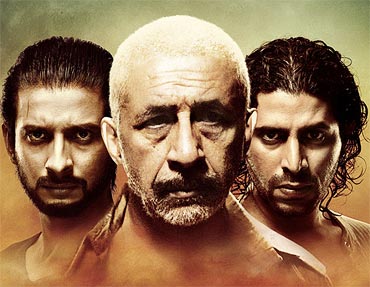
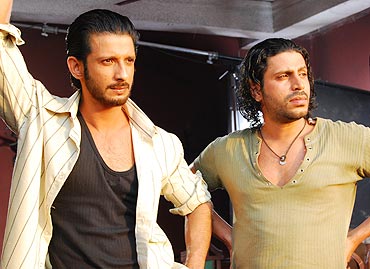
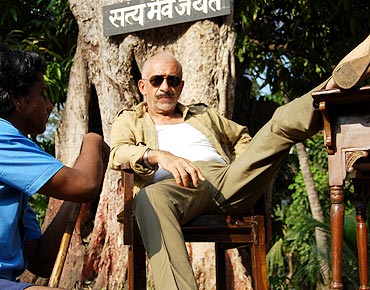
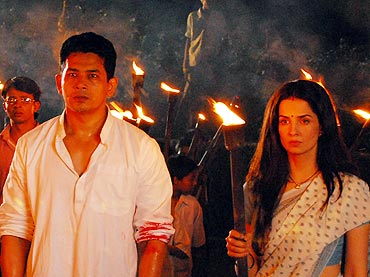
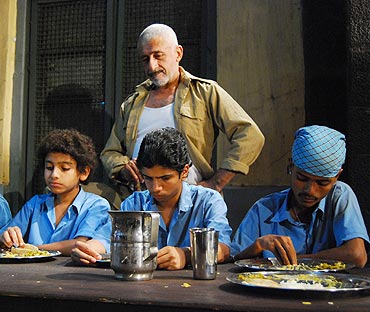
Comment
article